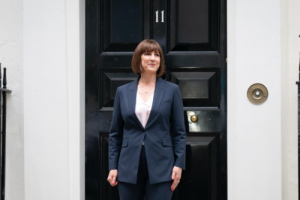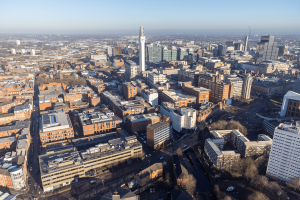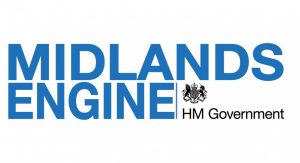Inflation falls by more than one per cent, but work still needed on economy

Today’s drop in CPI (consumer price index) inflation to 6.8%, down from 7.9% in June and back to the same level as February last year, will bring relief to 10 Downing Street after PM Rishi Sunak’s pledge to slash levels by the end of the year.
The Bank of England predicts inflation will fall to five per cent by the end of the year, but this is still more than double its target figure and work still remains to do, with both wages and interest rates continuing to rise.
Food price rises remained seven times higher than a year ago at 14.8% despite a significant fall from the June 17.3% rate of food inflation.
A key driver of inflation was the surge in energy prices following Russia’s invasion of Ukraine on February 24 last year. Energy prices are now dropping, but, for the first time in nearly two years, wage growth in the private sector surpassed the rate of inflation.
Chancellor Jeremy Hunt said: “The decisive action we’ve taken to tackle inflation is working, and the rate now stands at its lowest level since February last year.
“But while price rises are slowing, we’re not at the finish line. We must stick to our plan to halve inflation this year and get it back to the 2% target as soon as possible.”
Labour’s shadow chancellor, Rachel Reeves, said: “Inflation in Britain remains high and higher than many other major economies. After 13 years of economic chaos and incompetence under the Conservatives, working people are worse off – with higher energy bills and prices in the shops.”
However, core inflation, which does not track items susceptible to sharp rises and falls, such as food and energy, remained static at 6.9%.
A glimmer of hope has been offered to commuters. Increases in rail fares are usually linked to the rate of inflation, but Ministers have said the Government will fix increases below CPI, although they have not indicated at what level.
Neil Rudge, head of enterprise at banking group, Shawbrook, said: “A slower increase in prices is good news for many and provides some reassurance for business owners that perhaps the economy is more stable than it has been.
“This newfound equilibrium is underscored by the latest CBI SME Trends Survey which reported stable sentiment for a second successive quarter.
“This may not seem significant on its own, but when looking at the latest UK GDP figures showing growth despite the sharp declines experienced in 2022 and the beginning of 2023, the outlook for the rest of the year appears to be growing increasingly positive.
“However, many businesses continue to face challenges. While SMEs remain resilient, business owners are diversifying their strategies and funding options. We’re seeing that many are keen to explore specialist finance solutions, such as asset-based lending, which may help to minimise fluctuations in finances, track a business’s growth, and ultimately offer more flexibility during uncertain times.”
Lily Megson, policy director at My Pension Expert, had a warning, though: “Inflation falling and wages rising will bring relief to Britons. But it might only be temporary. Indeed, inflation’s persistent grip on people’s finances is not set to loosen any time soon. Hardly a settling prospect for those in, or approaching, retirement.
“Whilst retirees can enjoy some reassurance that their state pension will increase in line with inflation, thanks to the triple lock, the Government cannot assume that this will fix the UK’s pension issues. More can and must be done to provide those approaching or in retirement with the necessary support to help them understand exactly how they can protect their pension from wider economic circumstances.
“The approach of just ‘waiting until inflation comes under control’ is not fit for purpose. The Government must look to other areas of support to help people better understand their financial circumstances.”
Martin McTague, national chair of the Federation of Small Businesses (FSB) said: “While a drop in inflation provides some comfort, today’s figures show less of a drop in inflation than hoped for, and will renew fears of a wage-price spiral, and of yet more base rate hikes in future.
“The worry now is that rising wages ignite a fresh wave of inflation in September, which will threaten the momentum from June’s GDP growth.”
Danni Hewson, head of financial analysis at investment platform, AJ Bell, said: “Wage increases and price pressures have forced up service costs and that’s weaving its own nasty spell on core inflation.
“And it’s the core figure that will keep pressure on the Bank of England to keep raising interest rates until the sticky tendrils have been eradicated like weeds denied water.
“Today’s figure does buy the Government a bit of breathing space and it seems Rishi Sunak’s five percent target is now achievable.
“But there remains a question for many families facing the prospect of spiralling mortgage costs – is the new pain worse than that which is being cured?”









